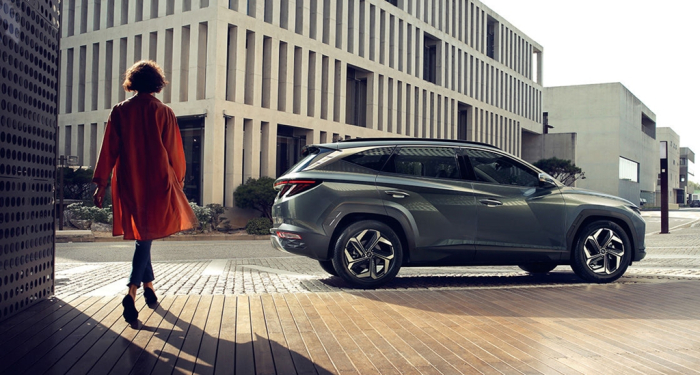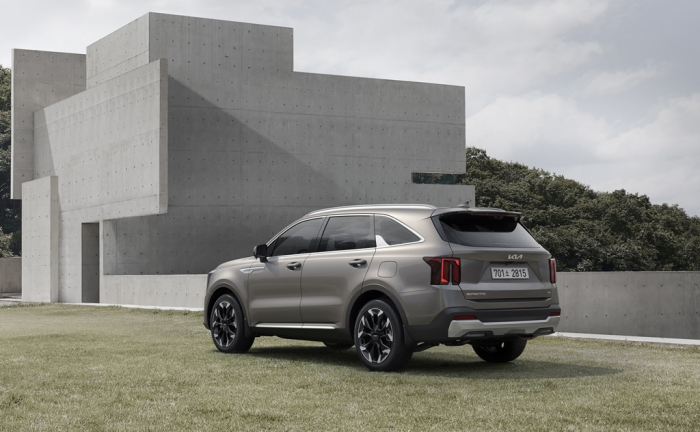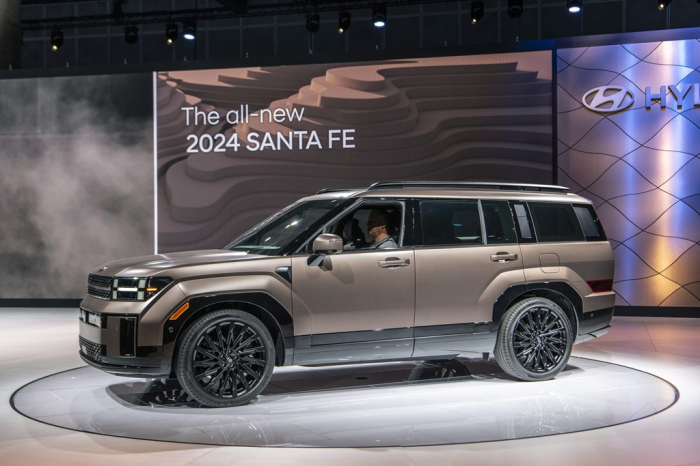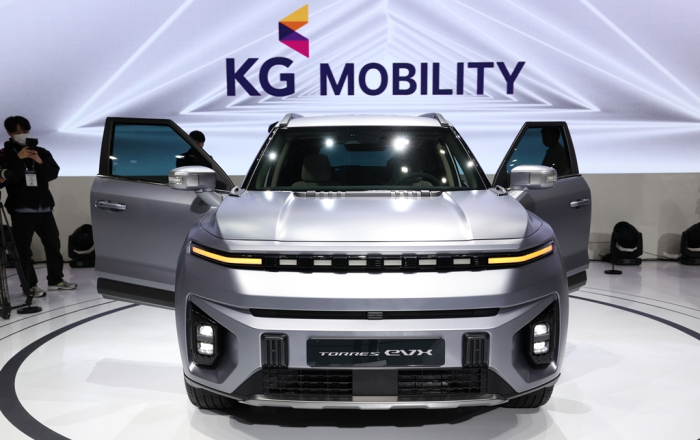Automobiles
SUVs: Name of the game in 2023 South Korean auto market
Given their affordable prices, the popularity of mid-sized SUVs as family cars will continue into next year, analysts say
By Dec 18, 2023 (Gmt+09:00)
3
Min read
Most Read
Hankook Tire buys $1 bn Hanon Systems stake from Hahn & Co.


NPS to hike risky asset purchases under simplified allocation system


UAE to invest up to $1 bn in S.Korean ventures


Osstem to buy BrazilŌĆÖs No. 3 dental implant maker Implacil


US multifamily market challenges create investment opportunities



Back in the 1970s, when simply having a car was a status symbol in South Korea, a four-door passenger sedan was the car of choice. And Hyundai Motor Co.'s Pony, the countryŌĆÖs first mass-produced sedan, was a dream car for many.
Fast forward more than 50 years, it is no exaggeration to say that Koreans are in love with sport utility vehicles, so much so that six out of every 10 vehicles on the road are SUVs. Sedans are now out in the cold.
According to Seoul-based automotive data provider CarIsYou, SUVs accounted for 61.4% of all vehicle registrations in Korea in the first 11 months of this year.
With less than one month to go before the yearŌĆÖs end, the ratio of SUVs versus the total will certainly rise above the 60% threshold for the first time on an annual basis, analysts said.

Just a decade ago, SUVs accounted for about a third of the Korean car market, with new SUV sales at 460,470 units in 2014. Since then, the SUV proportion has steadily increased to break the 40% resistance line in 2017 and rise above 50% just a few years later.
In 2019, SUVs outsold sedans for the first time in Korea. The gap widened to 121,000 more SUVs than sedans in 2020, and then a difference of 242,000 units in 2021 and 343,000 vehicles last year.
MESMERIZED BY FUEL EFFICIENCY, COMFORT, SPACIOUS INSIDE
Mesmerized by their high fuel efficiency and comfortable ride ŌĆō this as a result of technological advancement ŌĆō and versatile use of space inside, SUVs have become the name of the game in KoreaŌĆÖs vehicle sales market.
According to the Korea Automotive Technology Institute, the appeal of sport utility vehicles in Korea is stronger than the global trend. SUVs accounted for 40.8% of the worldŌĆÖs automobile sales in 2022.

CarIsYou data showed new SUV registrations, including those of recreational vehicles (RVs) with more seats, reached 856,362 units in the January-November period ŌĆō the highest since 2014 and above last yearŌĆÖs full-year number of 837,948.
Given the average monthly SUV registration of 77,851 units in the first 11 months of this year and the usually stronger SUV sales in the fourth quarter compared to the three preceding quarters, this yearŌĆÖs new SUV registrations are sure to exceed the 900,000 milestone, industry officials said.
Of the 10 best-selling cars sold in the January-November period, seven were SUVs, according to CarIsYou.
Hyundai MotorŌĆÖs luxury sedan Grandeur was the bestseller, followed by affiliate Kia Corp.'s Sorento SUV, KiaŌĆÖs Carnival MPV and KiaŌĆÖs compact Sportage SUV.

UPPING THE ANTE
KoreaŌĆÖs three leading carmakers ŌĆō Hyundai, Kia and KG Mobility Corp. ŌĆō said this summer they are upping the ante in their battle to take a greater share of the fast-growing mid-sized SUV market by launching sleek and stylish new models.
In September, KG Mobility, which specializes in SUVs, launched the Torres EVX, its first EV model since the company changed its name from Ssangyong Motor Co. in March.
A month earlier, Hyundai Motor, KoreaŌĆÖs top carmaker, started selling its latest, all-new Santa Fe ŌĆō a drastically revamped flagship model, which fiercely competes with the Kia Sorento.

The showdown comes as foreign carmakers, including Toyota, Tesla and Mercedes-Benz, also bring their flagship models to challenge Korean peers on the SUV turf.
Mid-sized SUVs have become increasingly popular among Korean drivers as family cars thanks to their affordable prices, and their sales growth will continue into next year, industry watchers said.
Write to Sungsu Bae at baebae@hankyung.com
In-Soo Nam edited this article.
More to Read
-
 AutomobilesHyundai to hike Exter SUV output to capitalize on void in India
AutomobilesHyundai to hike Exter SUV output to capitalize on void in IndiaOct 09, 2023 (Gmt+09:00)
3 Min read -
 AutomobilesKG Mobility unveils Torres EVX, electric version of its popular SUV
AutomobilesKG Mobility unveils Torres EVX, electric version of its popular SUVSep 20, 2023 (Gmt+09:00)
1 Min read -
 AutomobilesSanta Fe, Sorento, Torres to lead mid-sized SUV sales war in Korea
AutomobilesSanta Fe, Sorento, Torres to lead mid-sized SUV sales war in KoreaAug 07, 2023 (Gmt+09:00)
2 Min read -
 AutomobilesHyundai, Kia, Toyota unveil new SUVs in head-to-head showdown
AutomobilesHyundai, Kia, Toyota unveil new SUVs in head-to-head showdownJul 25, 2023 (Gmt+09:00)
2 Min read -
 AutomobilesHyundaiŌĆÖs design inspiration: Pony Concept restored after 50 years
AutomobilesHyundaiŌĆÖs design inspiration: Pony Concept restored after 50 yearsMay 19, 2023 (Gmt+09:00)
3 Min read
Comment 0
LOG IN


